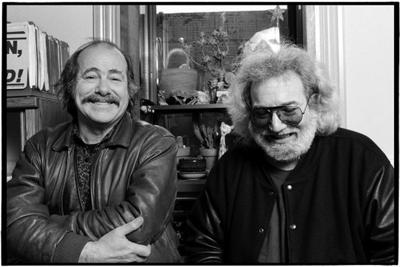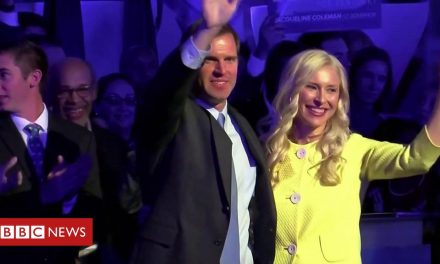Billy DeLyon made more than one mistake. He never should have been gambling in the family’s drinking establishment, and he should have been a better judge of character. After all, there must have been some sign that Stagger Lee wasn’t the kind of man who would lose his Stetson Hat in a dice game without exacting some kind of revenge.
It was Christmas Eve in 1940 that Stagger Lee shot and killed Billy DeLyon, at least according to Grateful Dead lore. There isn’t anything else in the song that would really lead you to believe that the story took place in the 20th-Century. When did they start serving Gin Fizzes? I guess that’s something that you can date.
Stagger Lee is otherwise a straight-up Old West ballad, and a great tribute to Delia DeLyon who gets justice for her husband or brother (you decide which) when all the men in her town were too cowardly to attempt it.
You can think of her as the female equivalent of Clint Eastwood in the old spaghetti westerns, particularly Hang ‘Em High.
When Robert Hunter put together his version of the Ballad of Stagger Lee and Delia DeLyon, he was drawing on a very old tradition. Whether called “Stacker Lee,” “Stack-O-Lee” or “Stag-O-Lee,” this legendary fellow had already been sung about by people as varied as Mississippi John Hurt, Cab Calloway, and Woody Guthrie.
This was the kind of well that Hunter liked to draw from, and he came up with reworks and originals that consistently painted compelling pictures of 19th-Century American life. Often, this was life on the frontier, but not always. Peggy-O, for example, is a story about the Civil War set in Louisiana. Jack-A-Roe is about an English sailor who sets off to fight in some unspecified war, possibly the War of 1812.
The vast majority of songs in the Grateful Dead’s repertoire have no references to anything modern like cars, planes, people or events. Most travel is done on horseback, ship or train. Men court women in traditional ways. There’s a lot of saloons, gambling, gunfights, sheriffs, posses, and jailhouses. Hanging is a common punishment. Vigilante justice is a common theme, but so is the outlaw who seeks to elude the vigilantes.
Even when the lyrics explicitly bring us into the 20th-Century, as with Stagger Lee and Brown-Eyed Women, the picture remains antique.
In 1920 when he stepped to the bar
he drank to the dregs of the whiskey jar
In 1930 when the Wall caved in
he paid his way selling red eye gin
If you’re doing a song about Prohibition, you could sing about Al Capone or Jay Gatsby, but Hunter focuses on a “tumble down shack in Bigfoot County” where it “snowed so hard that the roof caved in.”
It’s one of the oddities of the Grateful Dead that the perception of the band in the popular imagination is that they are a bunch of psychedelic-taking musicians who play weird improvisation music and long jams. Their fans are seen as countercultural hippies and idealistic peaceniks. But when you packed 20,000 Deadheads into a auditorium, they cheered along to songs about killing your uncle for his gold, running off to Mexico to drink tequila and bed down 14 year olds, and working in the coal mines for five dollars a day.
It’s hard to say that the Dead traded in nostalgia, exactly, because the picture they painted of the old America was hardly idealized. It was white-washed of Native-Americans, but the picture presented a hard, luckless frontier life where lawlessness was the norm and justice was elusive. The predominant theme was of the antihero as protagonist, or at least the storyteller. These were stories of people who made their own rules.
I just jumped the watchman
Right outside the fence
Took his ring, four bucks in change
Now ain’t that heaven sent?
There wasn’t much in the way of “can’t we all just get along?” For a bunch of hippies, the Kumbayah element was almost entirely missing. If you’re looking for a hippie theme to the Dead’s lyrics, it’s probably best to look for back-to-the-land kind of ideals. In some way, their near-total refusal to embrace modernity is a call for simpler times and less complicated lives. I’ve always felt that this was the core message of their 1973 album, Wake of the Flood, and especially of its epic Weather Report Suite which took up nearly a third of the record.
(These next lyrics were written by the Dead’s other lyricist John Perry Barlow)
The plowman is broad as the back of the land he is sowing
As he dances the circular track of the plow ever knowing
That the work of his day measures more than the planting and growing
Let it grow, let it grow, greatly yieldSo it goes, we make what we made since the world began
Nothing more, the love of the women, work of men
Seasons round, creatures great and small, up and down, as we rise and fall
This is not to say that the Dead didn’t have their psychedelic side because they certainly did. The song China Cat Sunflower, for example, is basically a verbal description of either a mescaline or peyote trip that Hunter took down in Mexico. Other songs attempt to describe the kind of “a-ha” moment that can sometimes accompany a journey on LSD: “Once in a while you get shown the light in the strangest of places if you look at it right,” “Sometimes the light is all shining on me, other times I can barely see,” “Gone are the broken eyes we saw through in dreams. Gone – both dream and lie.”
These insights (or referrals to insights) could be embedded in nonsense or they could be doled out as pearls of wisdom. As with a lot of effective poetry, sometimes the whole can be less than the parts. I don’t know what the song Row Jimmy is really about, but I know that there was something really important and meaningful for me as a confused fourteen year old boy in being encouraged to just keep rowing, without any assurance that I’d ever get where I was going. Hunter’s words just spoke to me.
Broken heart don’t feel so bad
Ain’t got half a what you thought you had
Rock your baby to and fro
Not too fast and not too slow
There’s an idea in that stanza that when you lose something you really haven’t lost as much as you think because you never had as much as you thought you had. And then there’s the further comfort that you can set that stuff aside and just find refuge and comfort in intimacy with another person.
The song Ship of Fools practically served as a personal ethos and roadmap for my life: “I won’t slave for beggar’s pay, likewise gold and jewels. But I would slave to learn the way to sink your ship of fools…The bottles stand as empty as they were filled before. Time there was and plenty but from that cup no more. Though I could not caution all I yet may warn a few: Don’t lend your hand to raise no flag atop no ship of fools.”
In important and often devastating respects, the culture around the Grateful Dead was about taking mind-alterning substances: turning on, tuning in, and dropping out. The band members seemed to embrace the delusion that the world could be redeemed if enough people found enlightenment through psychedelics, and the end result was a predictable tragedy for countless people, including Jerry Garcia.
But there was so much more to the scene than addled idealism and addiction and overdoses. The Dead and Deadheads weren’t mere proxies for a generation of hippies. And a big reason why is that Robert Hunter is a much deeper and more timeless thinker than that. He’s an anthropologist of American folklore and folk music, a brilliant poet and song writer, and a person with a seemingly bottomless font of wisdom ready to impart.






